Big sister to the rescue? Venezuela ‘wins funds’ from China
Venezuelan President Nicolas Maduro, who is in China on a four-day state visit, says he has secured new funding from Beijing for his country’s trouble-hit oil industry as well as other sectors.
“There are financing commitments to increase oil production, gold production, as well as investment in more than 500 development projects within Venezuela,” Maduro told Venezuelan state television VTV from China on Saturday.
Oil output is the main generator of income for Venezuela but output levels have recently fallen to their lowest level in three decades — mainly as a result of sanctions by the United States and other internal economic woes, further contributing to a decline in the economy, which has in turn forced over two million people to emigrate in the past couple of years.
China, Venezuela’s main creditor, has loaned some $50 billion to the OPEC member country in the past decade, with Caracas repaying the debt in several installments with oil shipments. Caracas still owes $20 billion to Beijing.
Maduro did not specify the amounts of the funding he said China has newly promised.
Unconfirmed reports said on Friday that Beijing had agreed to pay Caracas a new $5-billion loan with a six-month extension to the grace period to service its debt.

China visit a ‘success’
The leftist leader described his ongoing official visit to China as a “success” and said he was willing to learn from the East Asian country in order to improve the Venezuelan economy.
“It is a golden opportunity that we have today. I have great expectations. I am willing to learn to perfect the path that Venezuela has taken and achieve what is most important for the years to come, an economic revolution that will free the productive forces of the country and successfully create real wealth for the general happiness of our people,” Maduro said.
He said the people of Venezuela favored an “economic revolution,” but that work must be done to “perfect the plan, perfect the capacity for monitoring, analysis, statistics, driving economic actors, and building our own model.”
China’s state-run Xinhua news agency reported that Maduro and his Chinese counterpart, President Xi Jinping, had agreed to promote bilateral comprehensive strategic partnership to a higher level.
President Xi welcomed Maduro’s visit to China and praised his efforts to expand bilateral ties and expressed firm support for Sino-Venezuela cooperation, Xinhua said.
Xi told Maduro that Beijing backed the Venezuelan government’s “efforts to seek a stable national development,” according to Chinese state broadcaster CCTV.
“China is willing to strengthen exchanges of experience in governing the country and politics with Venezuela,” the Chinese president said.
Maduro and Xi also on Saturday signed a series of strategic agreements in areas such as technology, education energy, trade, culture, and health.
Maduro, who will leave China on Sunday, earlier called China his country’s “big sister.”
Maduro has traveled to Beijing mainly to salvage his country’s economy.
About 2.3 million Venezuelans have left Venezuela since economic crisis erupted in 2015 — more than 500,000 only this year — mostly for Brazil, Chile, Colombia, Ecuador, and Peru.
The International Monetary Fund has announced that inflation in Venezuela could top one million percent by the end of this year.
President Maduro has blamed a US-led economic war for the crisis, saying Washington is plotting to topple his socialist government. His opponents blame massive mismanagement.
‘Messages of fire’: Israel’s calculations go awry as Palestinian projectiles fly past missile system
Fabricated: Video showing release of women from Sednaya jail in Syria
Iran’s November steel output at 3.1 mln mt, world’s 7th largest
Police commander assassinated in terrorist attack in southern Iran
Field executions, sexual violence: Survivors recount Israeli crimes at north Gaza hospital
VIDEO | From Beirut
Iran urges swift action by UN to halt Israel’s raids on Gaza hospitals
Yemeni forces target Israeli Nevatim Airbase in missile strike


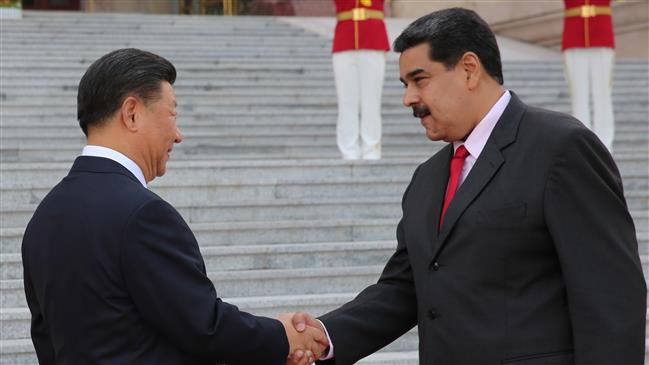

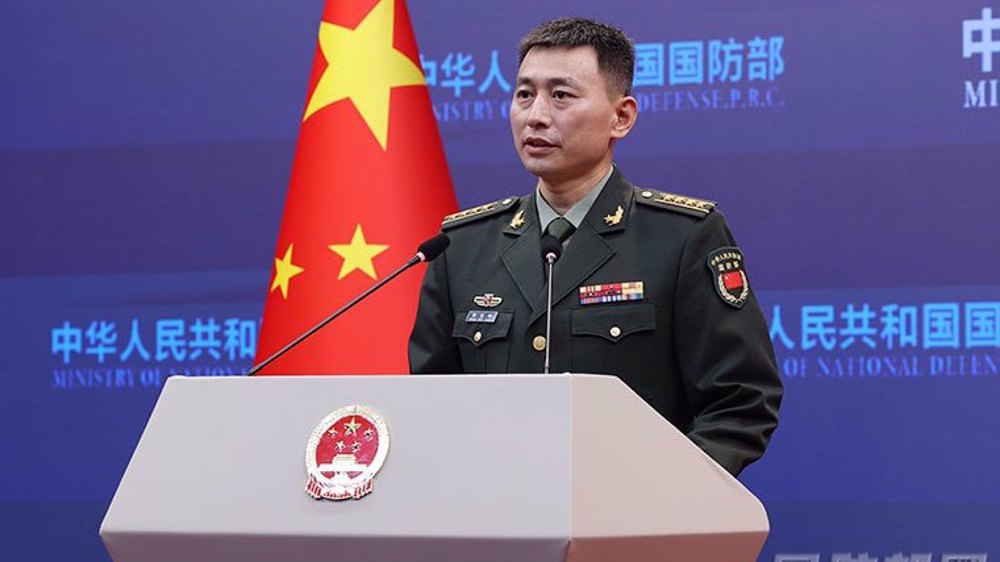





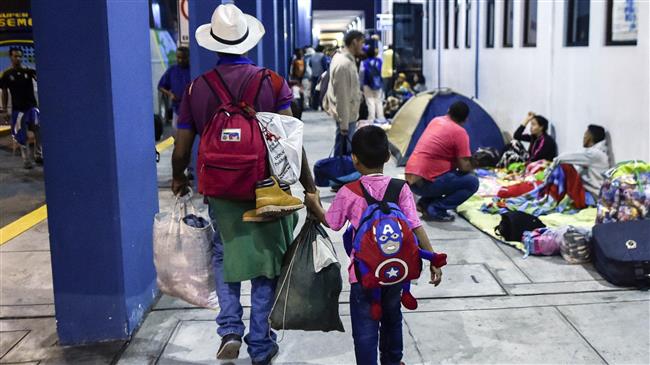
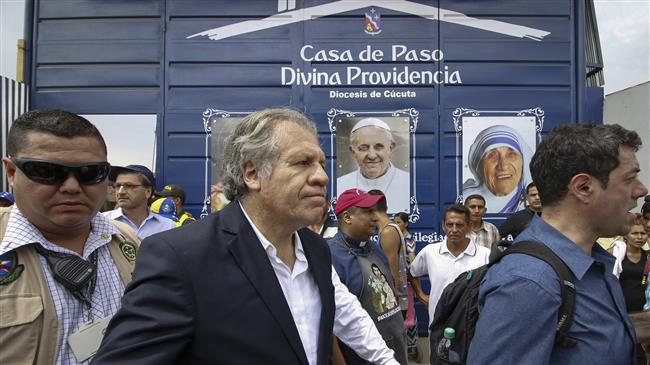
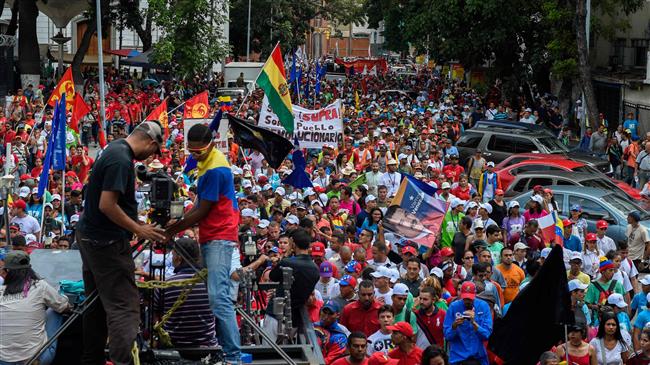


 This makes it easy to access the Press TV website
This makes it easy to access the Press TV website